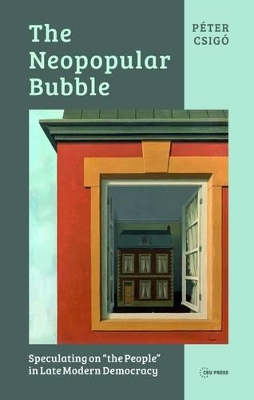The common critique of media- and ratings-driven politics envisions democracy falling hostage to a popularity contest. By contrast, the following book reconceives politics as a speculative Keynesian beauty contest that alienates itself from the popular audience it ceaselessly targets. Political actors unknowingly lean on collective beliefs about the popular expectations they seek to gratify, and thus do not follow popular public opinion as it is, but popular public opinion about popular public opinion. This book unravels how collective discourses on "the popular" have taken the role of intermediary between political elites and electorates. The shift has been driven by the idea of "liquid control:" that postindustrial electorates should be reached through flexibly designed media campaigns based on a complete understanding of their media-immersed lives. Such a complex representation of popular electorates, actors have believed, cannot be secured by rigid bureaucratic parties, but has to be distilled from the collective wisdom of the crowd of consultants, pollsters, journalists and pundits commenting on the political process.The mediatization of political representation has run a strikingly similar trajectory to the marketization of capital allocation in finance: starting from a rejection of bureaucratic control, promising a more "liquid" alternative, attempting to detect a collective wisdom (of/about "the markets" and "the people"), and ending up in self-driven spirals of collective speculation.
- ISBN10 9633861675
- ISBN13 9789633861677
- Publish Date 1 January 2017
- Publish Status Active
- Publish Country HU
- Imprint Central European University Press
- Format Hardcover
- Pages 426
- Language English
